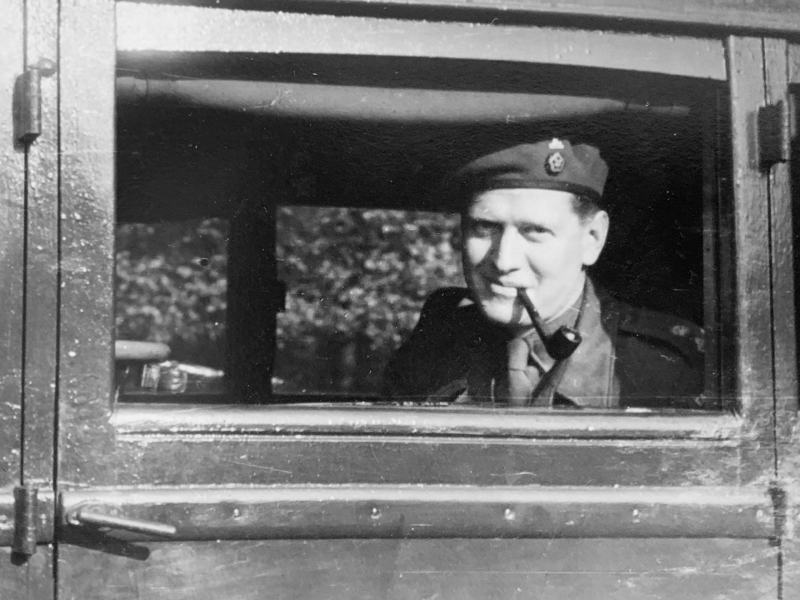Allen, Frederick Fernley Edmund
- Date of birth:
- December 12th, 1912 (London, Great Britain)
- Date of death:
- June 29th, 2005
- Service number:
- 87057
- Nationality:
- British
Biography
Promotions:
?: Cadet;
April 26th, 1939: 2nd Lieutenant;
October 15th, 1940: Lieutenant (war subs.);
October 15th, 1940: temporary Captain;
November 20th, 1941: Captain (war subs.);
November 20th, 1941: temporary Major;
January 17th, 1945: Major (war subs);
January 17th, 1945: temporary Lieutenant Colonel;
April 1946: Honorary Lieutenant Colonel.
Career:
?: Brighton College;
?: Brighton College Contingent, Junior Division, Officer Training Corps;
?: 32nd (7th City of London) Anti-Aircraft Battalion, Royal Engineers
1937: TA Battalion, Oxford and Buckinghamshire Light Infantry;
1944: Second-in-Command, 1st Battalion, The Suffolk Regiment;
?: Commanding Officer, 1st Battalion, The Suffolk Regiment;
November 1944: Commanding Officer, 1st Battalion, The East Lancashire Regiment;
March 9th, 1945: acting Commander, 158th Infantry Brigade
?: Military Governor, Brunswick;
?: Finance Division, British Military Government;
September 26th, 1950: The Oxfordshire and Buckinghamshire Light Infantry, Territorial Army Reserve of Officers;
September 27th, 1950: The East Lancashire Regiment, Territorial Army Reserve of Officers;
1946: Director, Stewart Smith Group;
1955: Managing Director Stewart Smith Group.
.jpg)
Do you have more information about this person? Inform us!
- Period:
- Second World War (1939-1945)
- Rank:
- Acting Lieutenant-Colonel
- Unit:
- 1st Battalion East Lancashire Regiment, 158th Infantry Brigade, 53rd (Welsh) Infantry Division, British Army
- Awarded on:
- April 12th, 1945
** As his Battalion communications were out of action, Lt Col ALLEN went up to his forward companies which were under heavy and accurate fire by artillery, mortar and tanks and were suffering heavy casualties on the open snow covered slopes. From this exposed position he directed his battle and when his forward companies were held up he directed his reserved in such a way so that the momentum of the attack was maintained and the Battalion captured its final objective as planned.
Lt Col. ALLEN then retracted his steps over the open bullet swept area and reported the situation to Brigade HQ on his Battery Command's set.
Throughout this action, and in the face of heavy enemy fire fro all arms including tanks, Lt Col ALLEN was without R/T communications for is companies and it was only by his complete disregard to danger and his extreme coolness under fire that he was able to co-ordinate and direct his attack, so that even without the original planned tank support he ensured that his Rifle companies took their objective."
- Period:
- Second World War (1939-1945)
- Rank:
- Temporary Lieutenant-Colonel
- Unit:
- 1st Battalion East Lancashire Regiment, 158th Infantry Brigade, 53rd (Welsh) Infantry Division, British Army
- Awarded on:
- April 19th, 1945
Throughout the long and anxious period of 27 hours, Lt-Col Allen, inspite of his wound, lack of sleep and his heavy responsibilities, continued to command his battalion with great skill, calm confidence and outstanding personal gallantry. His personal example and superb fighting qualities ensured beyond any doubt that his battalion's objective was held firm, and that by their offensive spirit whey were able to destroy very large number of the enemy who were equally determined to regain the vital ground captured and held secure by this battalion."
Second DSO awarded in the form of a bar to be worn on the ribbon of the first DSO.
- Period:
- Second World War (1939-1945)
- Rank:
- Temporary Lieutenant-Colonel
- Awarded on:
- May 18th, 1945
- Period:
- Second World War (1939-1945)
- Period:
- Second World War (1939-1945)
- Period:
- Second World War (1939-1945)
- Period:
- Second World War (1939-1945)
Sources
- Photo 1: James Allen
- - Recommendation for Award for Allen, Fernley Frederick Edmund Rank: Acting... | The National Archives
- DSO Bar Recommendation
- Supplement to The London Gazette of 12 April 1945, Issue 37027, Page 1941
- Supplement to The London Gazette of 19 April 1945, Issue 37040, Page 2078
- Officers of the British Army 1939-1945
- Lieutenant-Colonel Freddie Allen - Telegraph








